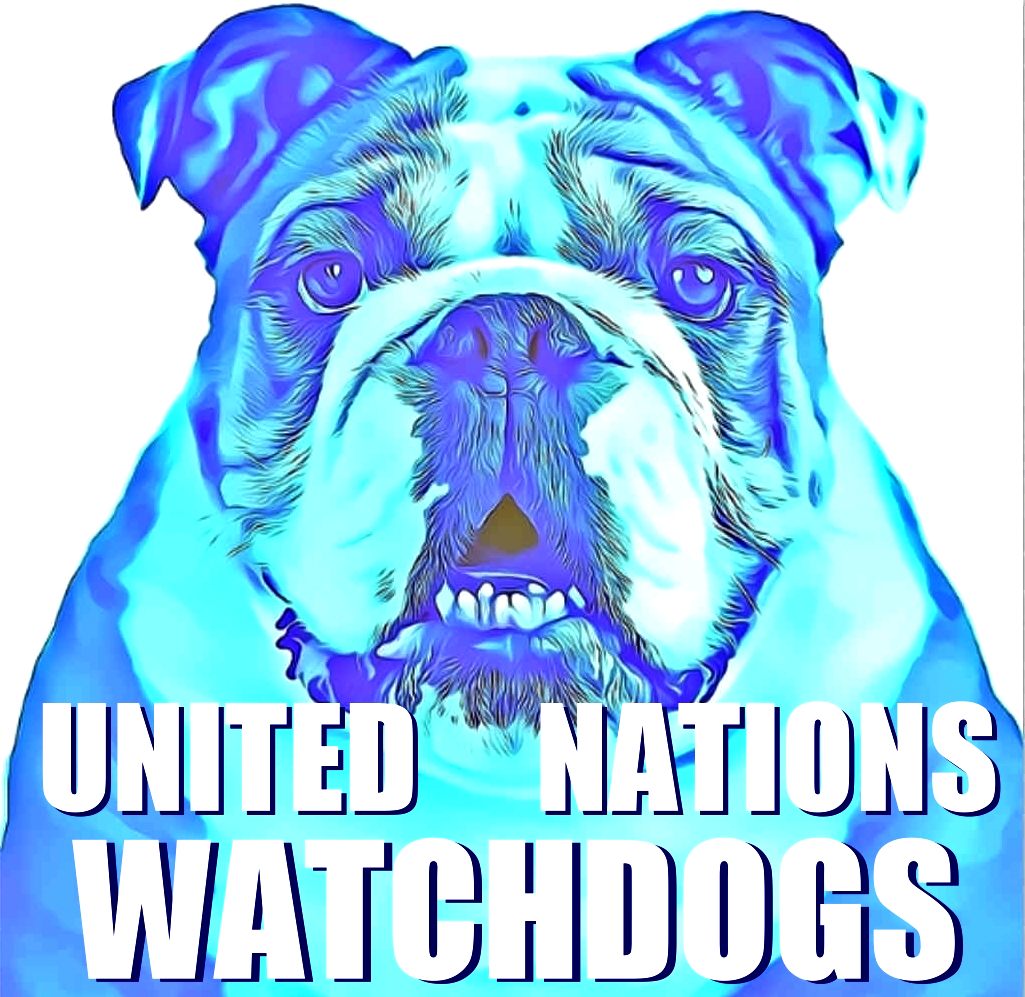|
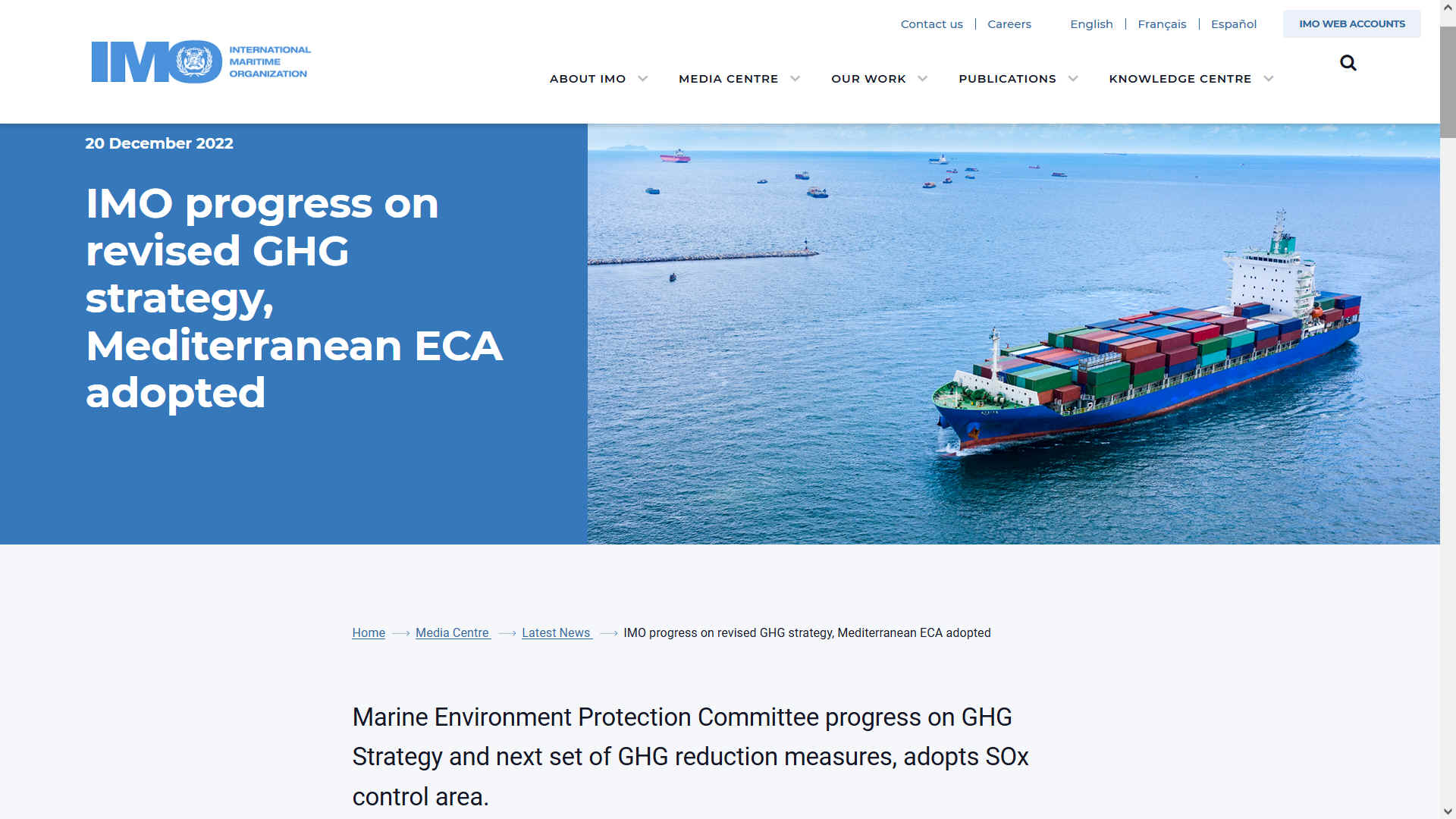
The International Convention for the Prevention of Pollution from Ships
(MARPOL) is the main international convention covering prevention of pollution of the marine environment by ships from operational or accidental causes.
The MARPOL Convention was adopted on 2 November 1973 at IMO. The Protocol of 1978 was adopted in response to a spate of tanker accidents in 1976-1977. As the 1973 MARPOL Convention had not yet entered into force, the 1978 MARPOL Protocol absorbed the parent Convention. The combined instrument entered into force on 2 October 1983. In 1997, a Protocol was adopted to amend the Convention and a new Annex VI was added which entered into force on 19 May 2005. MARPOL has been updated by amendments through the years.
The Convention includes regulations aimed at preventing and minimizing pollution from ships - both accidental pollution and that from routine operations - and currently includes six technical Annexes. Special Areas with strict controls on operational discharges are included in most Annexes.
Under
MARPOL, the
IMO
cannot engage proactively in an ocean
sweeping (drone patrols and the like), or deal with
discharges from rivers to tackle marine
pollution. Nor are they dealing with ghost fishing nets, to include
prosecuting offenders. They are
though adopting a passive approach by introducing new checks and
balances concerning fishing
vessels and ship
discharges.
Just
as importantly, concerning climate
change, new air quality laws are coming into play. Good news for
those acidic
oceans - if it is not too late.
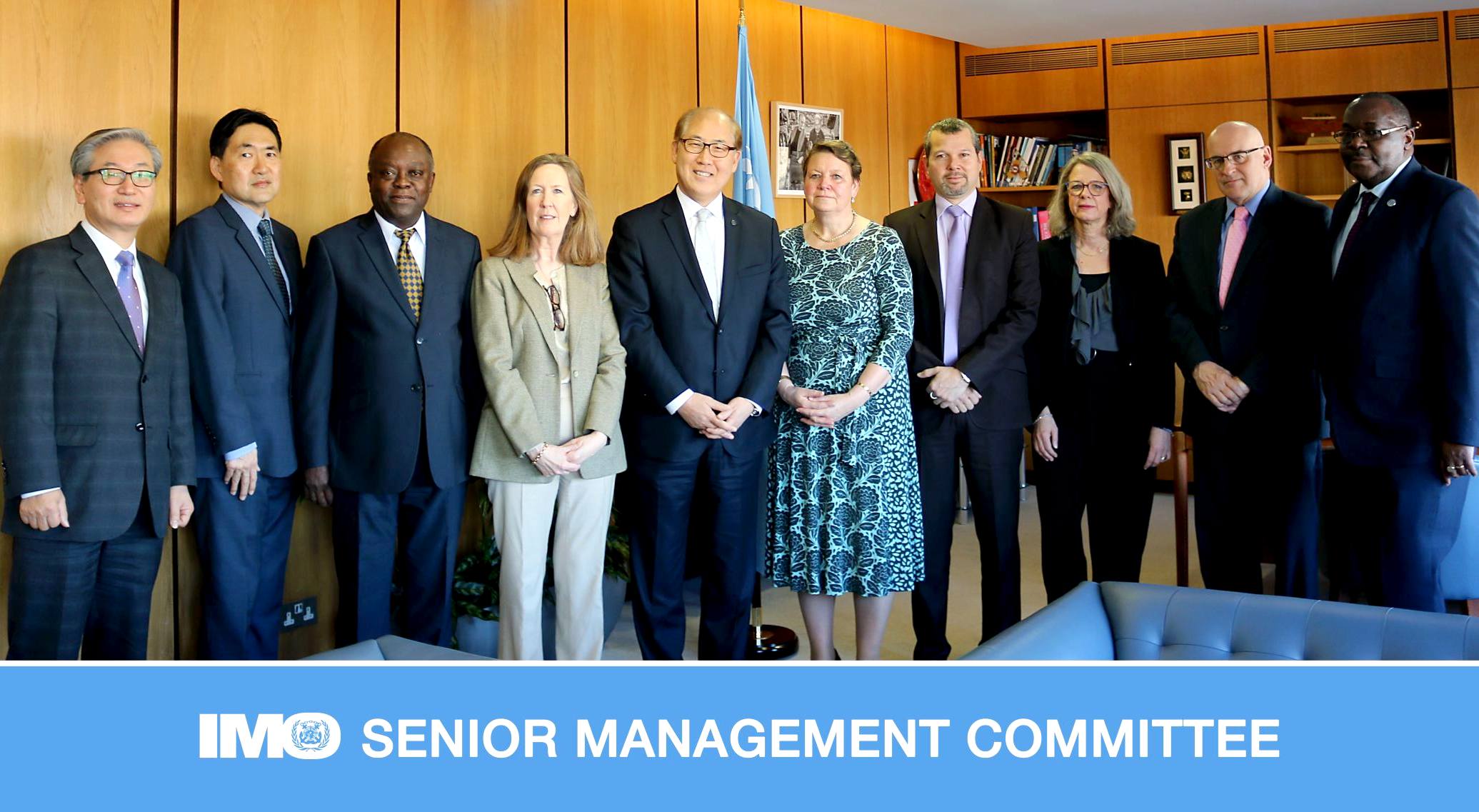
MAY
13-17 2019 74th MARINE ENVIRONMENT PROTECTION COMMITTEE SESSION
Chair: Mr. Hideaki Saito (Japan)
Main agenda items
Highlights of particular interest to media include the following -
please scroll down the page to read more:
1. Adoption of amendments to IMO mandatory instruments
2. Reduction of greenhouse gas (GHG) emissions from ships
3. Implementation of the sulphur 2020 limit
4. Marine
plastic litter action plan
5. Ballast water management (BWM) Convention implementation
6. Approval of guidance and other matters
7. Technical cooperation and capacity building
Working groups/drafting groups
The following working/drafting groups are expected to be established:
• Working Group on Air Pollution and Energy Efficiency;
• Working Group on Reduction of GHG Emissions from Ships;
• Working Group on Marine Plastic Litter;
• Drafting Group on Amendments to Mandatory Instruments;
• Ballast Water Review Group.
1. Adoption of amendments
MARPOL amendments - Cargo residues and tank washings of persistent
floating noxious liquid substances.
MEPC is expected to adopt draft amendments to MARPOL
Annex II to strengthen, in specified sea areas, discharge requirements
for cargo residues and tank washings containing persistent floating
products with a high-viscosity and/or a high melting point that can
solidify under certain conditions (e.g. certain vegetable oils and
paraffin-like cargoes), following concerns about the environmental
impact of permissible discharges.
The draft amendments add new paragraphs to MARPOL Annex II Regulation 13
– Control of discharges of residues of noxious liquid substances, to
require prewash and discharge of residue/water mixture generated during
the prewash to a reception facility, for specific products, in specified
areas (North West European waters, Baltic
Sea area, Western European waters and Norwegian Sea).
MARPOL amendments – use of electronic record books
Draft MARPOL Amendments to allow for electronic record books to be used
are set to be adopted, for Annex I - Oil Record
Book Part I – Machinery space operations and Oil Record Book Part II
– Cargo/ballast operations; Annex II - Cargo Record Book; and Annex V
- Garbage Record Book; and Annex VI for records relating to Regulation
12 – Ozone-depleting substances, Regulation 13 – Nitrogen
oxides (NOx) and Regulation 14 – Sulphur
oxides (SOx) and particulate matter
The MEPC is also expected to adopt related Guidelines for the use of
electronic record books under MARPOL.
MARPOL
amendments - EEDI regulations for ice-strengthened ships
Another draft amendment to MARPOL Annex VI are set to be adopted,
relating to the Energy Efficiency Design Index (EEDI) regulations for
ice-strengthened ships, replacing the words "cargo ships having
ice-breaking capability" with "category A ships as defined in
the Polar Code".
IBC Code amendments
The MEPC is expected to adopt a comprehensive set of draft amendments to
the International Code for the Construction and Equipment of Ships
carrying Dangerous Chemicals in Bulk (IBC Code), including the draft
revised chapters 17 (Summary of minimum requirements), 18 (List of
products to which the code does not apply), 19 (Index of Products
Carried in Bulk) and 21 (Criteria for assigning carriage requirements
for products subject to the IBC Code). Consequential draft amendments to
the Code for the construction and equipment of ships carrying dangerous
chemicals in bulk (BCH Code) are also expected to be adopted.
NOx Technical Code 2008 amendments
The draft amendments relate to the use of Electronic Record Books, and
Certification requirements for selective catalytic reduction (SCR)
systems.
2. Reduction of greenhouse gas emissions from
ships
IMO Initial GHG Strategy
The MEPC will discuss on how to implement the initial IMO strategy on
reduction of GHG emissions from ships, which was adopted in April 2018.
The strategy sets out a vision which confirms IMO’s commitment to
reducing GHG emissions from international shipping and to phasing them
out as soon as possible. Candidate short-, mid- and long-term further
measures with possible timelines and their impacts on States are listed.
MEPC 73 approved a programme of follow-up actions up to 2023.
Under the identified “levels of ambition”, the initial GHG strategy
envisages, in particular, a reduction in carbon intensity of
international shipping (to reduce CO2 emissions
per transport work, as an average across international shipping, by at
least 40% by 2030, pursuing efforts towards 70% by 2050, compared to
2008); and that total annual GHG emissions from international shipping
should be reduced by at least 50% by 2050 compared to 2008.
3. Implementation of the sulphur 2020 limit
IMO sulphur limit
The new lower 0.50% limit on sulphur in ships’ fuel oil will be in
force from 1 January 2020, under IMO’s MARPOL treaty,
with benefits for the environment and human health. The new limit will
be applicable globally (in designated emission control areas (ECAs) the
sulphur limit will remain at 0.10%).
The 1 January 2020 implementation date was adopted in 2008 and confirmed
in 2016. IMO has been working with Member States and the industry to
support implementation of the new limit, including the preparation of
draft amendments to MARPOL Annex
VI to support consistent implementation of the 0.50% sulphur limit and
development of guidance and guidelines. MEPC 73 approved Guidance on the
development of a ship implementation plan for the consistent
implementation of the 0.50% sulphur limit under MARPOL Annex VI
(MEPC.1/Circ. 878).
Expected outcomes at MEPC 74
MEPC 74 is expected to approve draft guidelines and guidance documents,
developed by the Sub-Committee on Pollution Prevention and Response (PPR
6), including:
• 2019 Guidelines for consistent implementation of the 0.50% sulphur
limit under MARPOL Annex VI;
• 2019 Guidelines for port State control under the revised MARPOL
Annex VI;
• guidance for port State control on contingency measures for
addressing non-compliant fuel oil;
• MEPC Circular on the 2019 Guidelines for on board sampling for the
verification of the sulphur content of the bunker
fuel oil used on board ships;
• MSC-MEPC circular on Delivery of compliant fuel oil by suppliers,
subject to approval by MSC 101 in June.
With regards to fuel oil quality, the MEPC will consider draft guidance
for best practice for Member State/coastal States as well as a proposal
for a bunker supplier licensing scheme.
The Committee will also consider proposals relating to the enhancement
of the implementation of MARPOL Annex VI regulation 18, which covers
fuel oil quality and availability.
Enforcement, compliance with and monitoring of the new sulphur limit is
the remit and responsibility of States Party to MARPOL Annex VI. Most
ships are expected to utilize new blends of fuel oil which will be
produced to meet the 0.50% limit on sulphur in fuel oil, or compliant
marine gas/diesel oil. Currently, the maximum sulphur limit in fuel oil
is 3.50% globally (and 0.10 % in the four ECAs: the Baltic
Sea area; the North
Sea area; the North American area (covering
designated coastal areas off the United States and Canada); and the
United States Caribbean
Sea area (around Puerto Rico and the United States
Virgin Islands)).
Some ships use exhaust gas cleaning systems (EGCS) (“scrubbers”),
accepted by their flag States as an alternative means to meet the
sulphur limit requirement. The MEPC will consider proposals for a new
agenda item, so that the Committee would consider to undertake an
environmental impact assessment of discharge water from
EGCS and to evaluate and harmonize rules and guidance on the discharge
of liquid effluents from EGCS.
4. Marine plastic litter action plan
The MEPC will follow up on the IMO Action Plan to address marine plastic
litter from ships adopted at the last session.
The MEPC is expected to, inter alia, develop the terms of reference for
a study on marine-plastic litter from ships, based on the work carried
out by a correspondence group that had been instructed to identify
issues to be considered under an IMO study on marine
plastic litter from ships; determine the most
appropriate mechanism to undertake the study; and develop a regulatory
framework matrix to identify all international regulatory instruments
and best practices associated with the issue of marine plastic litter
from ships.
5. Ballast water management treaty
implementation
The International Convention for the Control and Management of Ships'
Ballast Water and Sediments, 2004 (BWM Convention), entered into force
in September 2017 and has, to date, been ratified by 81 countries,
representing 80.76% of world merchant shipping tonnage. Amendments to
the treaty, relating, inter alia, to implementation timelines, were
adopted during MEPC 72.
The main focus for the convention now is on its effective and uniform
implementation, and on an experience-building phase, with a focus on
gathering data on application of the BWM treaty. The MEPC will consider
proposals related to ballast water sampling and analysis, including
revisions to the Data gathering and analysis plan for the
experience-building phase associated with the BWM Convention
(BWM.2/Circ.67), to incorporate a link to standard operating procedures.
The MEPC is expected to approve amendments to the BWM Convention and the
Code for Approval of Ballast Water Management Systems (BWMS Code),
concerning commissioning testing of ballast water management systems as
well as amendments to the form of the International Ballast Water
Management Certificate.
Also up for consideration are proposals in relation to the application
of the BWM Convention to specific ship types, as well as exemptions
under the Convention, including possible amendments to the Convention
and/or development of guidance.
MEPC 74 will also consider proposals for approval of ballast water
management systems that make use of Active Substances.
6. Approval of other amendments, guidance and
other matters
Amongst other matters, the MEPC is expected to:
• approve draft amendments, for future adoption, to the International
Convention for the Control of Harmful Anti-fouling Systems on Ships (AFS
Convention), to include controls on the biocide cybutryne.
• approve four circulars containing new or updated guidance relevant
to the assessment and carriage of chemicals in bulk, including the draft
revised MEPC circular on the Guidelines for the provisional assessment
of liquid substances transported in bulk.
• approve the methodology to analyse the impacts of a ban on the use
and carriage of heavy fuel oil as fuel in Arctic waters.
• approve the draft Guide on practical implementation of the pollution
prevention and response treaties (OPRC Convention and the OPRC-HNS
Protocol).
7. Technical cooperation and capacity building
activities
In order to implement IMO’s environment-related instruments, technical
cooperation and capacity building activities have played a very
important role at IMO.
During the MEPC, these TC activities, including several Major Projects,
will be introduced and updates will be presented.
A new Global Partnership Project was to be announced on Monday 13 May
2021. Please email media@imo.org for details.
This challenge for the IMO's members is in line with the global emphasis
on sustainable development goals (SDGs) 13
(climate) and 14
(oceans).
|
|
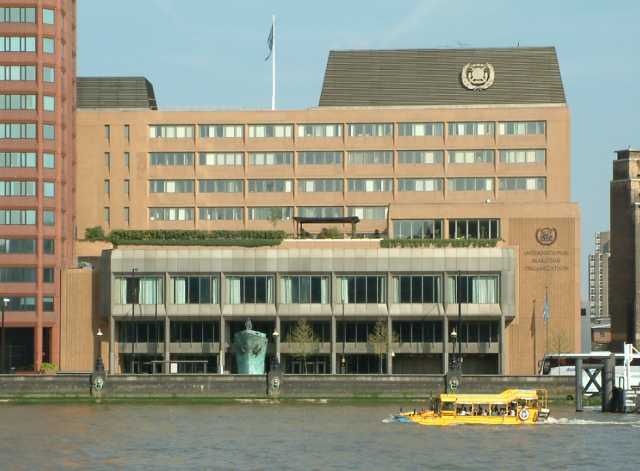
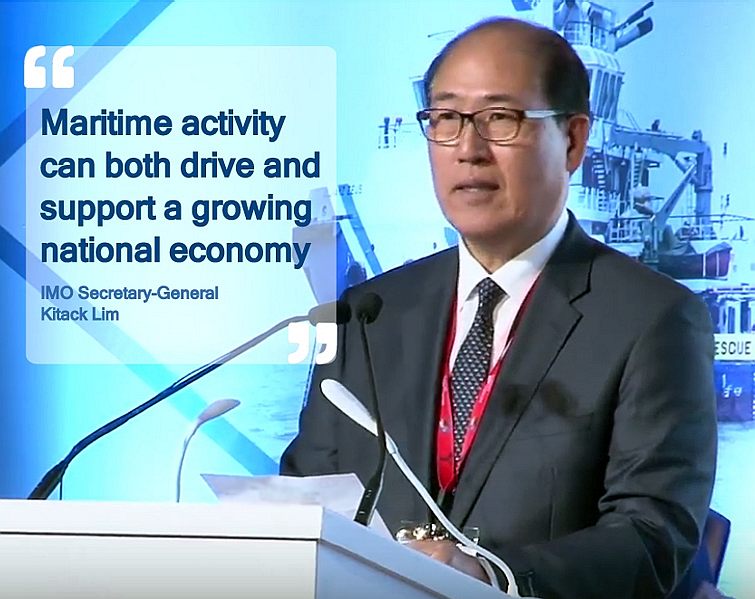
The
IMO's headquarters in London, on the banks of the river
Thames & Kitack Lim, Secretary General
At the present time there is a lack of infrastructure for clean bunker
fuels, such as ammonia, hydrogen
and methanol.
Just as importantly, there is a lack of capacity, to electrolyze water
and produce green
hydrogen, using on and offshore wind farms, and solar farms using PV
panels.
The
IMO might want to calculate needed capacity, to include that needed to
transition the automotive world from petrol and diesel trucks and cars. Then
add, the fuel needed to run cargo ships, ferries and cruise liners. It's unlikely
that such a study will have been carried out. But that is the first step the
Watchdogs would have taken (had they been funded to do so). Such as to be
able to reverse engineer solutions.
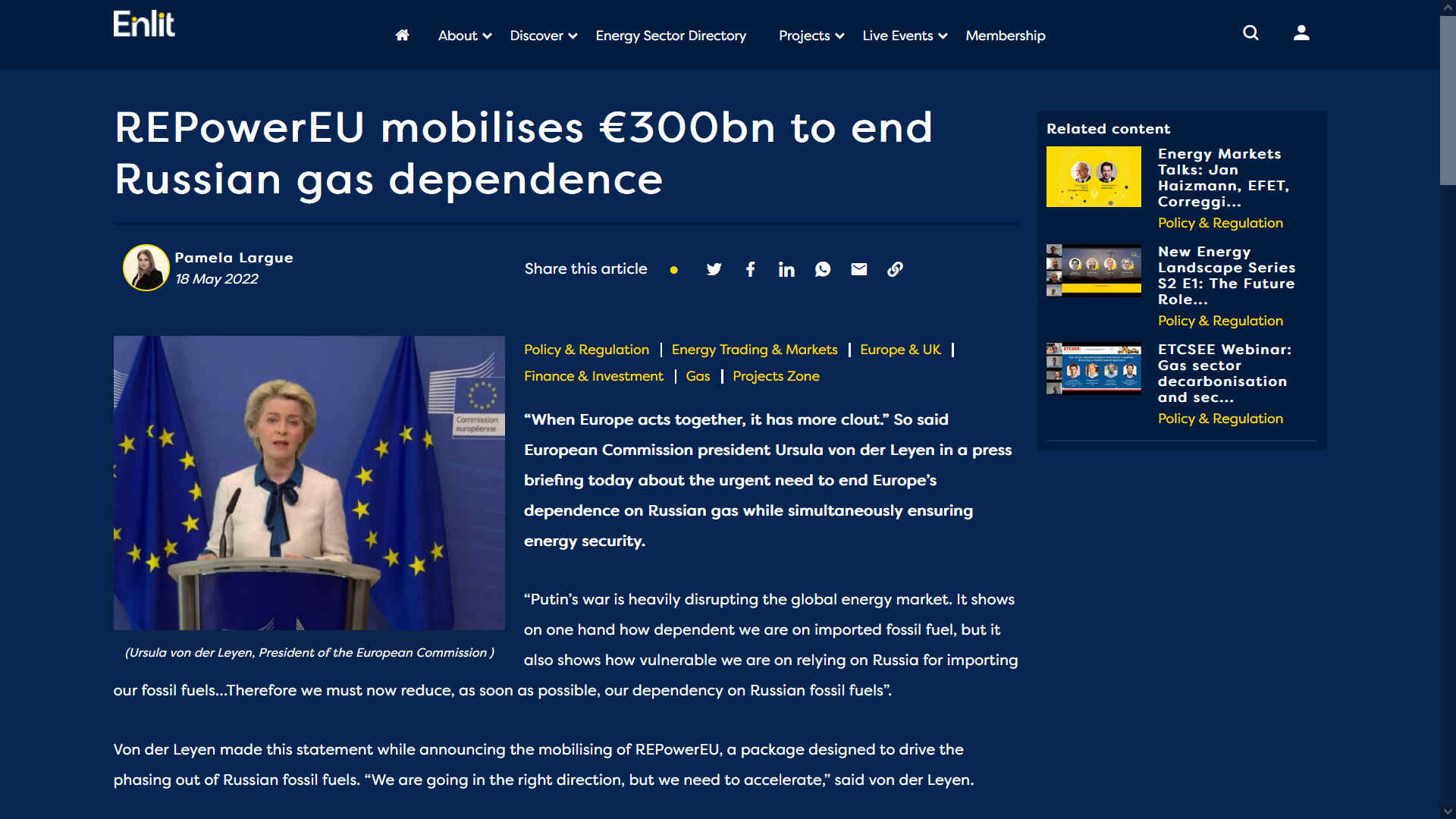
Hydrogen
and methanol appear to be the most promising clean fuels, using fuel
cells, or modified internal combustion engines. Unfortunately, the
production capacity is low, even with Europe's
€300 billion hydrogen development fund, hoping to divorce
themselves from Russian oil and gas. For which, the world might want to
thank Vladimir Putin, for the wake up call. Provided of course, that he
does not succeed and take the Ukraine, to add to his kleptocratic empire
building agenda.
|
|
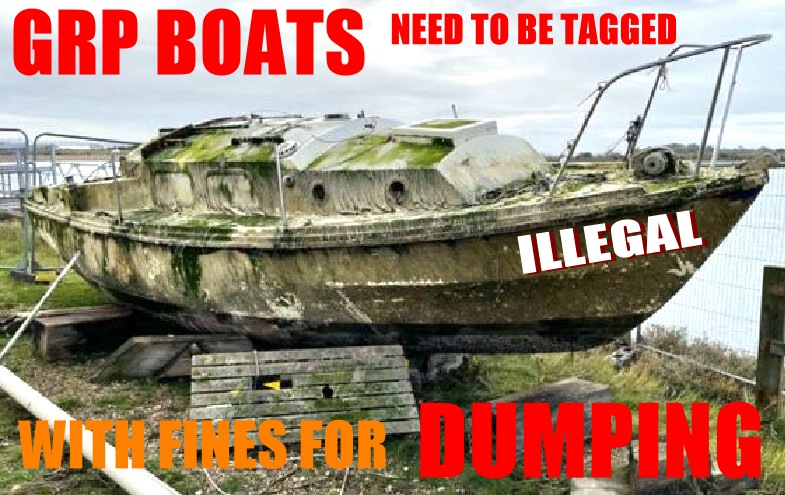
DISPOSABLE
- If they have the money to buy a boat or yacht, they have the throwaway
cash to responsibly recycle or dispose of the toxic waste
that glassfibre boats represent. Boats that are dumped illegally break
up into microscopic glass strands and plastics, that shellfish and other
seafood ingest, working its way up the food chain to humans. So, look at
the yachting and boating fraternity with new eyes. Are they registered
with a recognised "end-of-life" scrappage scheme. Does your
Government give a monkeys? If not, elect someone who actually gives a
damn. Marinas loaded with gleaming GRP boats, represents death to the
ocean, unless properly regulated. Though, boating is a healthy pastime
that should be encouraged, and most pleasure craft owners, would want to
do the right thing, once, the dangers of fibreglass is explained. The
marine leisure market is good for the economy. Whereas, commercial
fishing craft and fishermen, need to know all about GRP when deciding on
their next boat. Will they become plastic
free?
|





